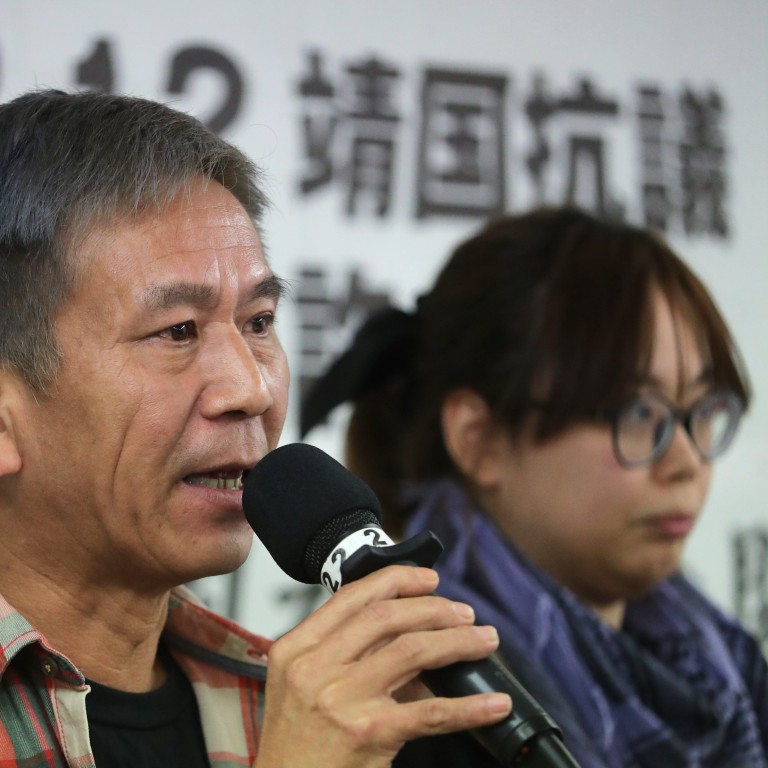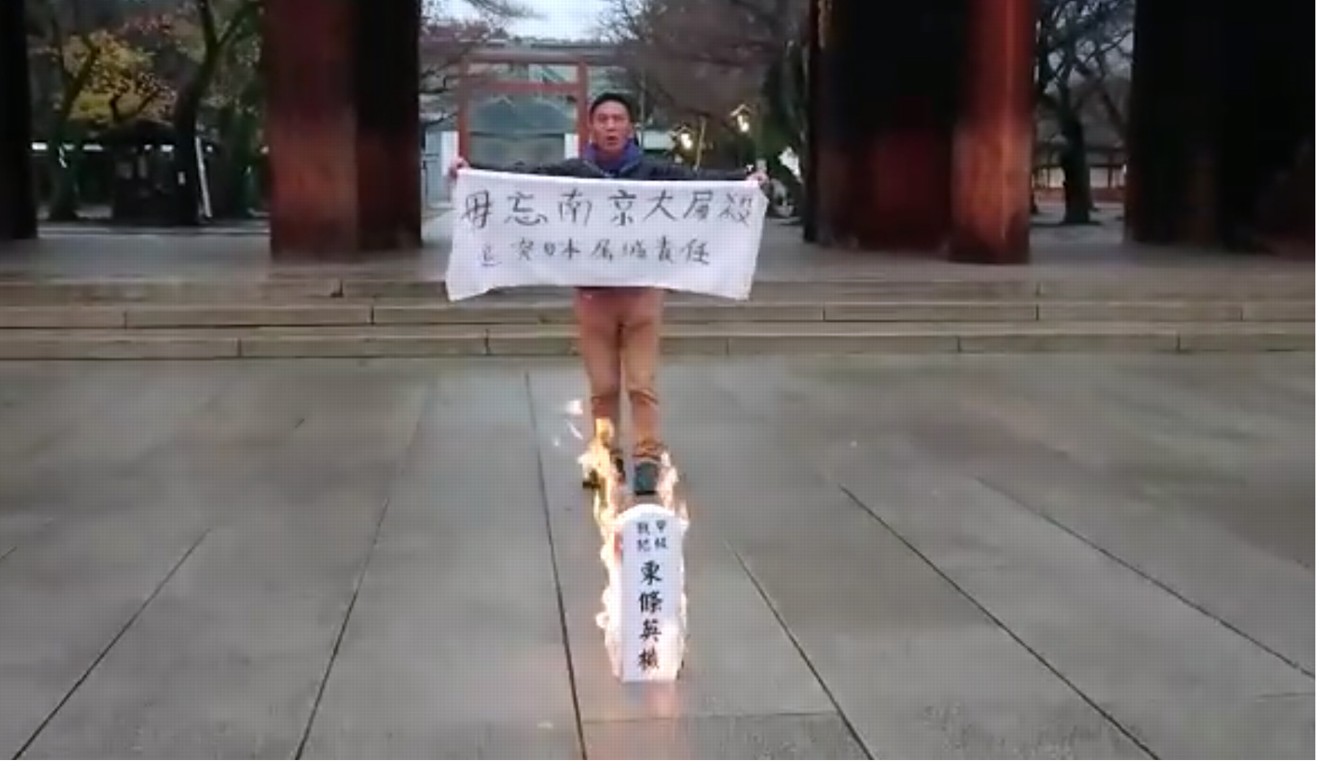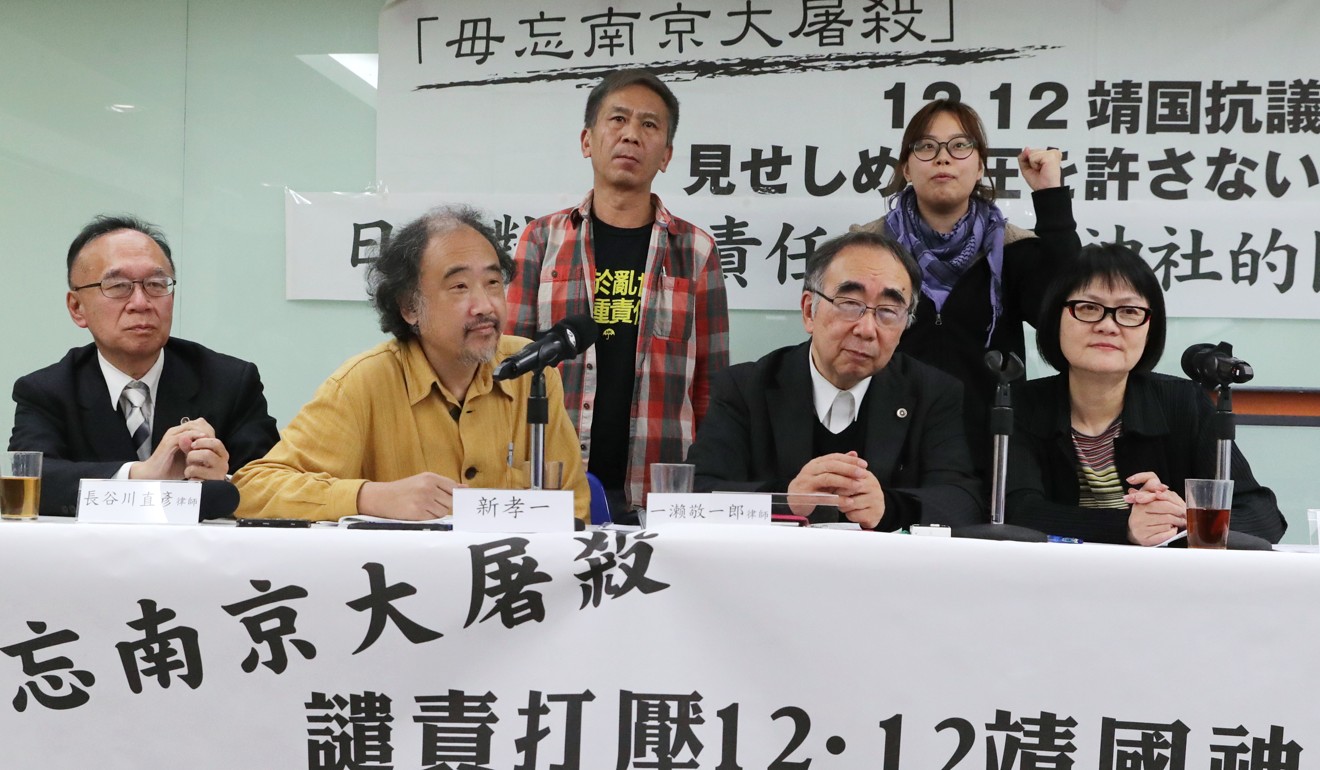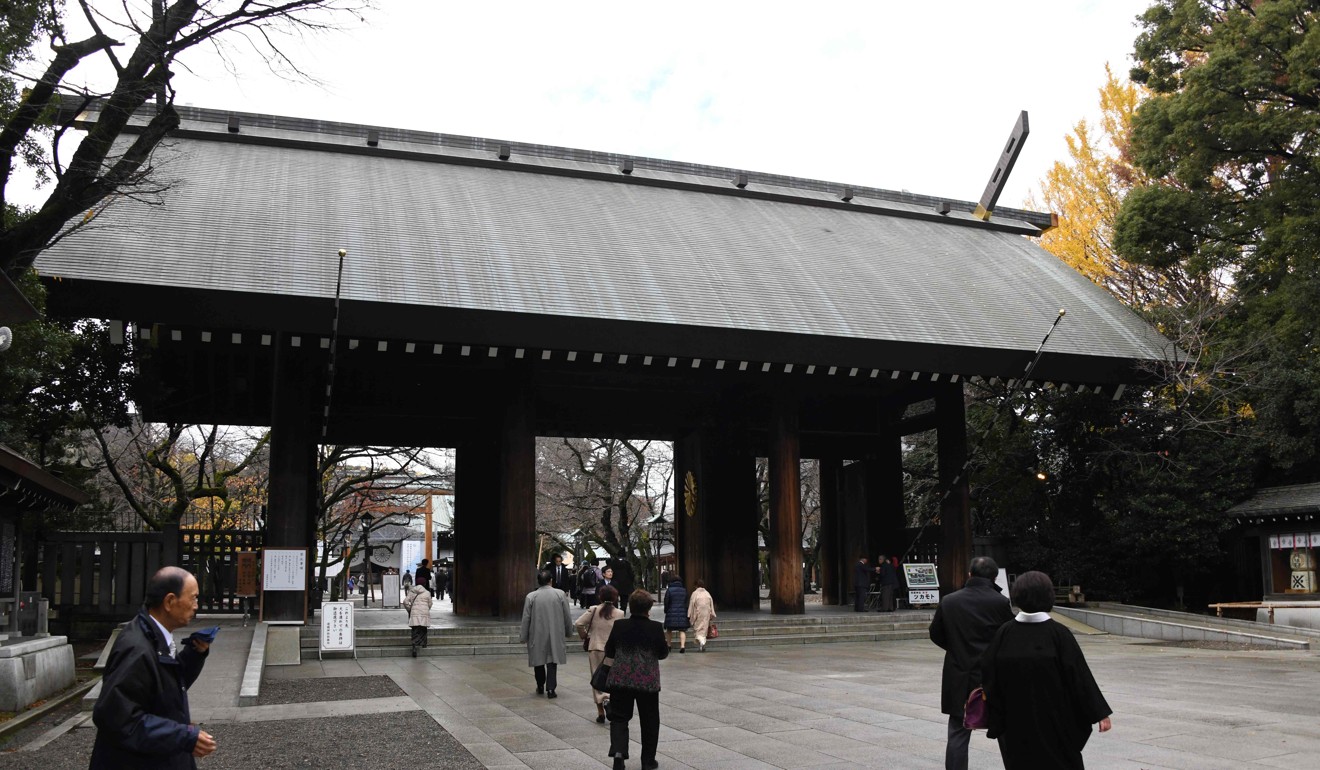
Hong Kong activists convicted in Japan over protest at Yasukuni Shrine set to appeal in Tokyo
- Alex Kwok and Yim Man-wa were convicted by a Tokyo court in October and given suspended jail sentences of eight and six months respectively
- Kwok displayed a banner and burned a symbolic ancestral tablet of wartime prime minister Hideki Tojo while Yim filmed the scene
Two Hong Kong activists found guilty of trespassing over a protest at a controversial war shrine in Tokyo will appeal their conviction in Japan.
During their action last December, Kwok, a self-employed lifeguard, displayed a banner demanding Japan take responsibility for the Nanking massacre and burned a symbolic ancestral tablet of wartime prime minister Hideki Tojo, while Yim, a journalist, filmed the scene.
In a press conference on Saturday, the pair, along with two Japanese lawyers who have been helping them, said they would file the appeal by April and expected a higher court in Tokyo to hear the case in May.

The lawyers said the appeal would be mainly on the grounds that the ruling was unconstitutional.
“Kwok’s actions at the shrine were clearly a form of protest guaranteed as freedom of expression under Article 21 of the Japanese constitution,” lawyer Keiichiro Ichinose said.
“Yim just filmed the process, which lasted for a few minutes. Her action of filming should be protected as freedom of the press.”
The lawyers would also argue that peaceful protests at the shrine, which is open to the public, should not constitute trespassing.
Activists detained over Yasukuni Shrine protest lash out at ‘stupid critics’
“If worshipping was described by prosecutors as the only legitimate purpose to enter the shrine, what about the annual assembly held by rightists to commemorate Japan’s defeat in World War II?” said Naohiko Hasegawa, the other lawyer.
He said the two activists, who returned to Hong Kong in mid-October, were not allowed to enter Japan again to attend the appeal hearing. They plan to call historians and constitutional experts to give evidence before the court to show the activists’ action was legitimate in a broader context.

Kwok said: “Our appeal is to force the Japanese government to reflect on the wartime past and rectify its increasing suppression of dissidents.”
The pair also accused the Japanese authorities of holding them in unlawful custody for nearly 10 months after their arrest, during which time their request for bail was refused eight times.
The protest took place ahead of the 81st anniversary of the Nanking massacre. Visits by Japanese leaders to the shrine routinely draw angry responses from those who suffered under the Japanese occupation before and during World War II.

From a video uploaded by the Hong Kong-based activist group Action Committee for Defending the Diaoyu Islands, Kwok was seen shouting: “Down with militarism! Forget not the Nanking massacre! Japan must apologise!”
The group staged protests in Hong Kong and Japan annually to call for the Japanese government to apologise over the violence. Although the death toll for the massacre in the city, now known as Nanjing, has not been conclusively established, China’s official estimate is more than 300,000. Some Japanese estimates put the toll as low as 30,000.
The occupation remains a source of bad blood between the two Asian powers.

